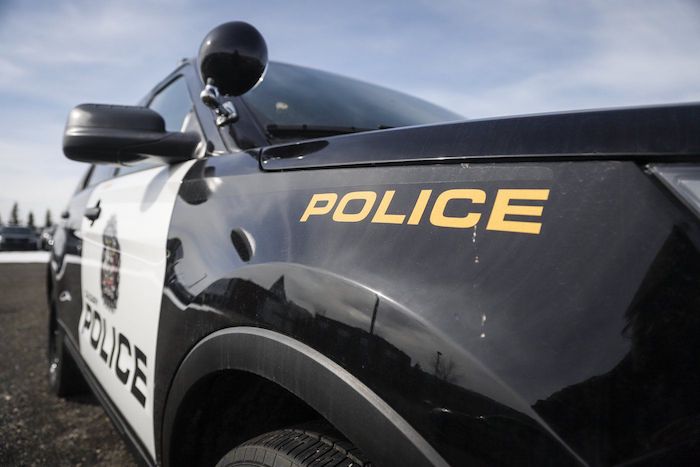Alberta
Province providing Indigenous communities and municipalities support to study future of policing

Committing to community policing
Alberta’s government will ensure Indigenous communities and municipalities have the support they need to study what kind of police service best meets their local needs.
Every Albertan should feel safe and secure in their communities and every community should be able to choose a policing model that meets their needs. Alberta’s government is investing in increased community safety by providing $6 million over two years for Indigenous and Municipal Police Transition Study Grants. These grants would provide Indigenous communities and municipalities with up to $30,000 each toward an independent study to determine if a local, self-administered police service or a regional policing model would be a better fit for their citizens.
“No one knows a community’s needs better than the people who live there. This funding will empower municipalities to explore different policing models that will improve public safety and address their community’s unique needs.”
The Indigenous and Municipal Police Transition Study Grants were created to assist communities interested in exploring different policing models. The grants will help communities cover the cost of conducting necessary research into local public safety needs, gaps, capital requirements and transition considerations.
To date, Public Safety and Emergency Services has received grant applications from 13 communities that are interested in a different policing model to meet their needs. The department is reviewing these applications and working with these and other communities that have expressed interest in applying.
“This funding provides municipalities with an excellent opportunity to study how best to meet their communities’ local and regional policing needs.”
Alberta’s government supports a community’s choice to determine what is best for its citizens, and assisting with the study and development of alternate policing models will help address the government’s public safety concerns. Every community has distinct needs, and each is in the best position to determine which policing model is best for them.
Budget 2023 secures Alberta’s future by transforming the health-care system to meet people’s needs, supporting Albertans with the high cost of living, keeping our communities safe and driving the economy with more jobs, quality education and continued diversification.
Quick facts
- Under Alberta’s Police Act, towns and cities with populations greater than 5,000 are responsible for their own policing.
- The Police Act gives municipalities the option of having their own police service, forming a regional policing arrangement or contracting for provincial policing services (i.e., the RCMP under Alberta’s provincial police service agreement).
- Under an agreement reached in September 2022, the Siksika Nation will get its own self-administered police service. Siksika developed a business case in 2021 with assistance from a $30,000 provincial government grant.
- Grande Prairie city council voted in March to create a municipal police service that will take over local policing from the RCMP.
- Over the next two years, Alberta will provide Grande Prairie with a $9.7-million grant to establish a local police service.
Alberta
Alberta judge sides with LGBT activists, allows ‘gender transitions’ for kids to continue

From LifeSiteNews
‘I think the court was in error,’ Alberta Premier Danielle Smith has said. ‘There will be irreparable harm to children who get sterilized.’
LGBT activists have won an injunction that prevents the Alberta government from restricting “gender transitions” for children.
On June 27, Alberta King’s Court Justice Allison Kuntz granted a temporary injunction against legislation that prohibited minors under the age of 16 from undergoing irreversible sex-change surgeries or taking puberty blockers.
“The evidence shows that singling out health care for gender diverse youth and making it subject to government control will cause irreparable harm to gender diverse youth by reinforcing the discrimination and prejudice that they are already subjected to,” Kuntz claimed in her judgment.
Kuntz further said that the legislation poses serious Charter issues which need to be worked through in court before the legislation could be enforced. Court dates for the arguments have yet to be set.
READ: Support for traditional family values surges in Alberta
Alberta’s new legislation, which was passed in December, amends the Health Act to “prohibit regulated health professionals from performing sex reassignment surgeries on minors.”
The legislation would also ban the “use of puberty blockers and hormone therapies for the treatment of gender dysphoria or gender incongruence” to kids 15 years of age and under “except for those who have already commenced treatment and would allow for minors aged 16 and 17 to choose to commence puberty blockers and hormone therapies for gender reassignment and affirmation purposes with parental, physician and psychologist approval.”
Just days after the legislation was passed, an LGBT activist group called Egale Canada, along with many other LGBT organizations, filed an injunction to block the bill.
In her ruling, Kuntz argued that Alberta’s legislation “will signal that there is something wrong with or suspect about having a gender identity that is different than the sex you were assigned at birth.”
She further claimed that preventing minors from making life-altering decisions could inflict emotional damage.
However, the province of Alberta argued that these damages are speculative and the process of gender-transitioning children is not supported by scientific evidence.
“I think the court was in error,” Alberta Premier Danielle Smith said on her Saturday radio show. “That’s part of the reason why we’re taking it to court. The court had said there will be irreparable harm if the law goes ahead. I feel the reverse. I feel there will be irreparable harm to children who get sterilized at the age of 10 years old – and so we want those kids to have their day in court.”
READ: Canadian doctors claim ‘Charter right’ to mutilate gender-confused children in Alberta
Overwhelming evidence shows that persons who undergo so-called “gender transitioning” procedures are more likely to commit suicide than those who are not given such irreversible surgeries. In addition to catering to a false reality that one’s sex can be changed, trans surgeries and drugs have been linked to permanent physical and psychological damage, including cardiovascular diseases, loss of bone density, cancer, strokes and blood clots, and infertility.
Meanwhile, a recent study on the side effects of “sex change” surgeries discovered that 81 percent of those who have undergone them in the past five years reported experiencing pain simply from normal movements in the weeks and months that followed, among many other negative side effects.
Alberta
Alberta Independence Seekers Take First Step: Citizen Initiative Application Approved, Notice of Initiative Petition Issued

Alberta’s Chief Electoral Officer, Gordon McClure, has issued a Notice of Initiative Petition.
This confirms a Citizen Initiative application has been received and the Chief Electoral Officer has determined the requirements of section 2(3) of the Citizen Initiative Act have been met.
Approved Initiative Petition Information
The approved citizen initiative application is for a policy proposal with the following proposed question:
Do you agree that Alberta should remain in Canada?
The Notice of Initiative Petition, application, and statement provided by the proponent are available on Elections Alberta’s website on the Current Initiatives Petition page.
As the application was received and approved prior to coming into force of Bill 54: Election Statutes Amendment Act, the Citizen Initiative process will follow requirements set out in the Citizen Initiative Act as of June 30, 2025.
Next Steps
- The proponent must appoint a chief financial officer within 30 days (by July 30, 2025).
- Once the 30-day publication period is complete and a chief financial officer has been appointed, Elections Alberta will:
- issue the citizen initiative petition,
- publish a notice on the Current Initiatives Petition page of our website indicating the petition has been issued, specifying the signing period dates, and the number of signatures required for a successful petition, and
- issue the citizen initiative petition signature sheets and witness affidavits. Signatures collected on other forms will not be accepted.
More information on the process, the status of the citizen initiative petition, financing rules, third party advertising rules, and frequently asked questions may be found on the Elections Alberta website.
Elections Alberta is an independent, non-partisan office of the Legislative Assembly of Alberta responsible for administering provincial elections, by-elections, and referendums.
-

 Business2 days ago
Business2 days agoMassive government child-care plan wreaking havoc across Ontario
-

 Alberta1 day ago
Alberta1 day agoAlberta judge sides with LGBT activists, allows ‘gender transitions’ for kids to continue
-

 Crime23 hours ago
Crime23 hours agoNational Health Care Fraud Takedown Results in 324 Defendants Charged in Connection with Over $14.6 Billion in Alleged Fraud
-

 Health23 hours ago
Health23 hours agoRFK Jr. Unloads Disturbing Vaccine Secrets on Tucker—And Surprises Everyone on Trump
-

 Business12 hours ago
Business12 hours agoElon Musk slams Trump’s ‘Big Beautiful Bill,’ calls for new political party
-

 Business2 days ago
Business2 days agoCanada Caves: Carney ditches digital services tax after criticism from Trump
-

 Crime2 days ago
Crime2 days agoSuspected ambush leaves two firefighters dead in Idaho
-

 Bruce Dowbiggin2 days ago
Bruce Dowbiggin2 days agoThe Game That Let Canadians Forgive The Liberals — Again






